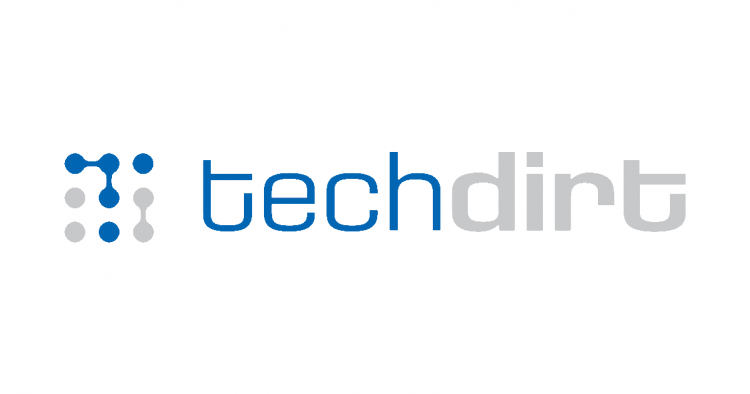from the troll-toll dept
We’ve noted for years how “Big Telecom” is desperate to have “Big Tech” pay them billions of dollars for no coherent reason. This effort is what began the net neutrality wars, and, despite the fact it’s routinely dressed up as adult policy making, it’s little more than a lobbyist-fueled cash grab.
The effort always starts with claims that Big Tech isn’t “paying its fair share” to access the Internet, despite tech giants like Amazon, Google, Netflix, and others paying billions of dollars for bandwidth — and their own cloud storage, transit, undersea cables, and in Google’s case… it’s own residential ISP.
From there, the argument suggests that because Big Tech consumes so much bandwidth, they should be paying Big Telecom billions of additional dollars annually — just because. It genuinely doesn’t make much sense, in large part because this demand is coming from the users of big tech, who have already paid an arm and a leg for bandwidth. It’s also daft because we’ve refused repeatedly (in both the EU and US) to meaningfully police telecom monopolies’ routine abuse of the billions in subsidies they already receive annually.
This dumb telecom industry policy ploy has been going on since 2002 or so. But in both the US and EU, telecom lobbyists have exploited legitimate, growing annoyance at tech giants to convince captured regulators they should once again consider this new “Big Tech tax.” Those captured regulators (like Trump appointed FCC Commissioner Brendan Carr here in the US) then show up in major news outlets trying to pass the cash grab off as something grander than it is.
Carr once again popped up this week in the (paywalled) Financial Times, insisting that it’s absolutely urgent that the EU and US begin taxing Google, Amazon, Netflix, and others to fund broadband infrastructure around the world:
“It’s a ripe issue and it’s at a pivot point,” Carr told the Financial Times. “The time where big tech was untouchable has passed.” “We need hundreds of billions of dollars to finance improvements to public networks but the current finance models are straining. The benefits are collecting in the hands of these big tech corporations and it’s time for a rebalancing,”
Carr of course is never to be found when it comes to policing subsidy fraud by giant telecom companies. He’s never so much as mentioned whistleblower complaints that AT&T has been ripping off U.S. school districts for years. He’s a no show when a company like Frontier Communications repeatedly rips off the U.S. government to the tune of multiple millions of dollars. You’ll not hear a peep from him when it’s found that Verizon failed to deploy fiber despite decades of tax breaks and subsidies.
Carr’s right, of course, that the programs we have to subsidize broadband access need shoring up. But if you watch him carefully he’ll never advocate for anything that would hold existing telecom giants accountable for subsidy fraud. And he’s avoiding that subject (at least when big companies are involved), because he’s operating as a direct, captured proxy for those telecom giants.
Last week, a group of top telecom experts wrote to EU policymakers to politely explain how this whole policy play is really just an empty-headed cash grab by telecom giants hoping to capitalize on (often legitimate) anger at Big Tech. They noted that existing “sender pays” terminology from peering arrangements has been hijacked by industry to try and dress this up as real policy.
And this week top EU telecom regulator BEREC issued a report that, once again, found this proposal to force tech giants to pay telecom giants even more money was absolute nonsense. They found, once again, no genuine examples of CAPS (content and application providers) getting a “free ride”:
both sides of the market – CAPs on the one hand and users of these applications on the other hand– already contribute to paying for Internet connectivity. There is no evidence that operators’ network costs are already not fully covered and paid for in the Internet value chain (from CAPs at one end, to the end users, at the other).
BEREC has stated this repeatedly, but it just doesn’t matter. Guys like Carr (and his equivalent in the EU) will just beat this “free ride” drum mercilessly, hoping that repetition forges reality. And they’re doing this not because they’re genuinely interested in the welfare of broadband consumers (most of these same gentlemen couldn’t care less about monopoly power or consumer protection), but because they’re helping telecom giants saddle tech giants with billions in additional new costs.
At this point, BEREC’s job is to just provide recommendations as EU lawmakers consider the EU’s digital policy trajectory for the next decade. But the fact they’ve had to deflate this idiotic balloon yet again shows how easily adult policymaking can be hijacked by a few telecom giants and their various political marionettes.
Just an unrelenting amount of effort has been poured into trying to pretend that this idea is a good faith, adult policy proposal, when it’s just a multi-decade attempt to get paid for doing nothing by telecom giants with a long history of subsidy fraud. If you really want to shore up broadband access, start by policing telecom monopolies, and the billions we throw at them for perpetually unfinished networks.
Once regulators have that corruption-fueled money pit repaired, maybe then they can talk seriously about dramatically expanding the broadband deployment contribution base with a straight face.
Filed Under: big tech, big telecom, brendan carr, broadband, corruption, digital divide, eu, fcc, high speed internet, subsidies, tax breaks, telecom, us
Source by www.techdirt.com





























